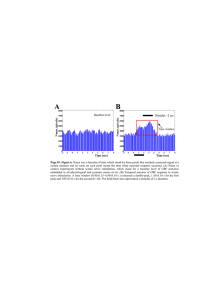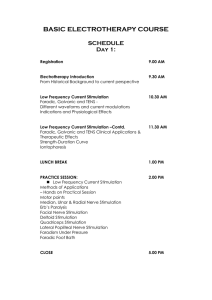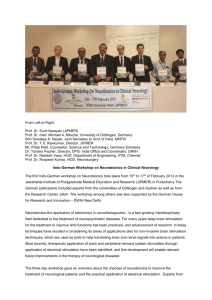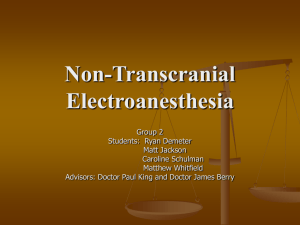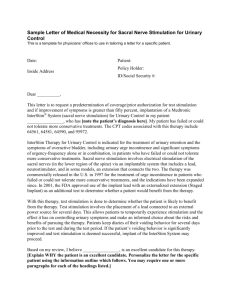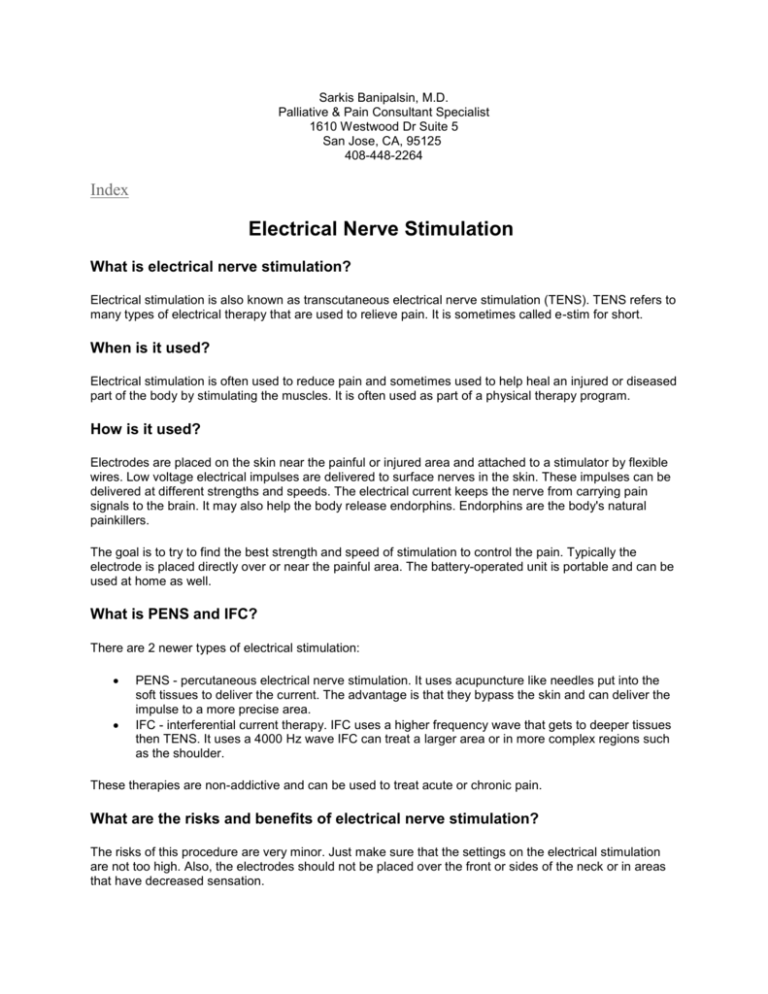
Sarkis Banipalsin, M.D.
Palliative & Pain Consultant Specialist
1610 Westwood Dr Suite 5
San Jose, CA, 95125
408-448-2264
Index
Electrical Nerve Stimulation
What is electrical nerve stimulation?
Electrical stimulation is also known as transcutaneous electrical nerve stimulation (TENS). TENS refers to
many types of electrical therapy that are used to relieve pain. It is sometimes called e-stim for short.
When is it used?
Electrical stimulation is often used to reduce pain and sometimes used to help heal an injured or diseased
part of the body by stimulating the muscles. It is often used as part of a physical therapy program.
How is it used?
Electrodes are placed on the skin near the painful or injured area and attached to a stimulator by flexible
wires. Low voltage electrical impulses are delivered to surface nerves in the skin. These impulses can be
delivered at different strengths and speeds. The electrical current keeps the nerve from carrying pain
signals to the brain. It may also help the body release endorphins. Endorphins are the body's natural
painkillers.
The goal is to try to find the best strength and speed of stimulation to control the pain. Typically the
electrode is placed directly over or near the painful area. The battery-operated unit is portable and can be
used at home as well.
What is PENS and IFC?
There are 2 newer types of electrical stimulation:
PENS - percutaneous electrical nerve stimulation. It uses acupuncture like needles put into the
soft tissues to deliver the current. The advantage is that they bypass the skin and can deliver the
impulse to a more precise area.
IFC - interferential current therapy. IFC uses a higher frequency wave that gets to deeper tissues
then TENS. It uses a 4000 Hz wave IFC can treat a larger area or in more complex regions such
as the shoulder.
These therapies are non-addictive and can be used to treat acute or chronic pain.
What are the risks and benefits of electrical nerve stimulation?
The risks of this procedure are very minor. Just make sure that the settings on the electrical stimulation
are not too high. Also, the electrodes should not be placed over the front or sides of the neck or in areas
that have decreased sensation.
You should not have this treatment if you have a pacemaker or if you are pregnant.
Some of the benefits are:
less pain over the injured area
better tissue healing over injured area
increased muscle strength
When should I call my healthcare provider?
Call your healthcare provider if
You have increased pain.
You have any change in skin color - like redness or black or blue areas.
You develop a break in the skin over the area you are treating.
Written by Lee Mancini, MD., CSCS.
Published by RelayHealth.
Last modified: 2009-10-29
Last reviewed: 2009-07-01
This content is reviewed periodically and is subject to change as new health information becomes available. The information is
intended to inform and educate and is not a replacement for medical evaluation, advice, diagnosis or treatment by a healthcare
professional.
References
Adult Advisor 2011.1 Index
© 2011 RelayHealth and/or its affiliates. All rights reserved.


